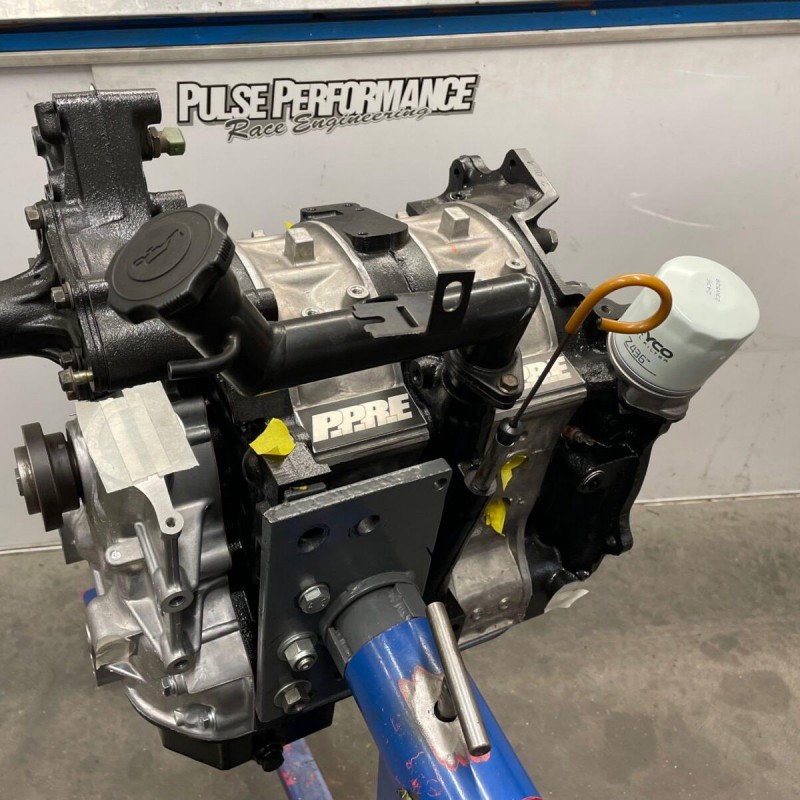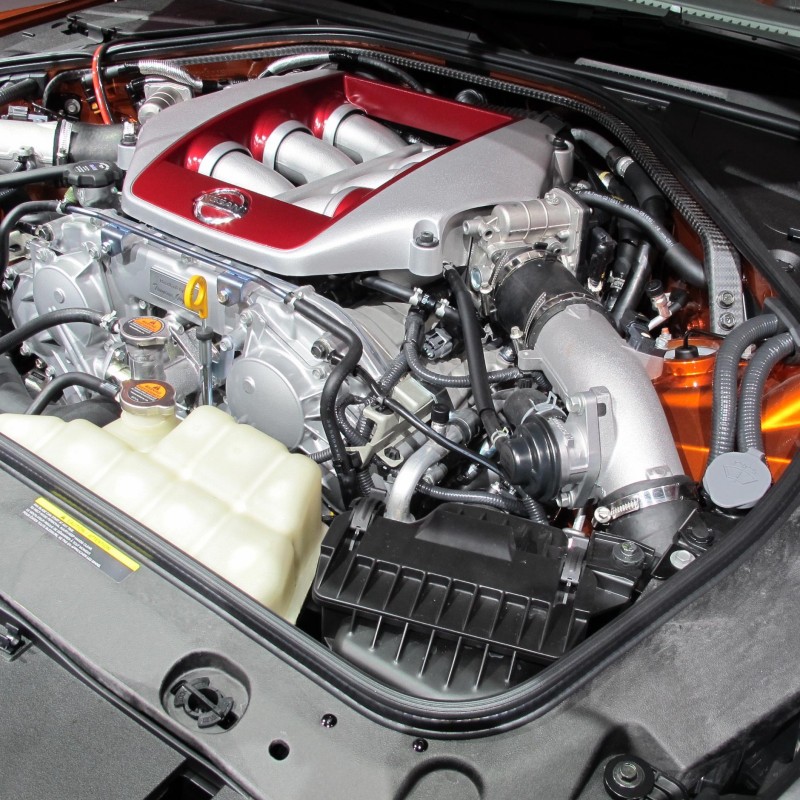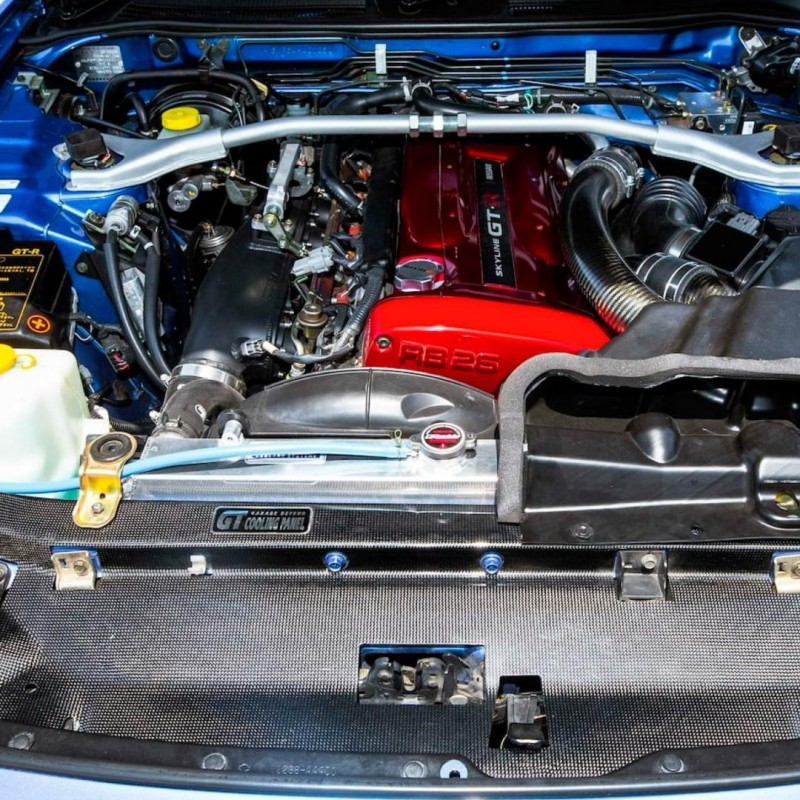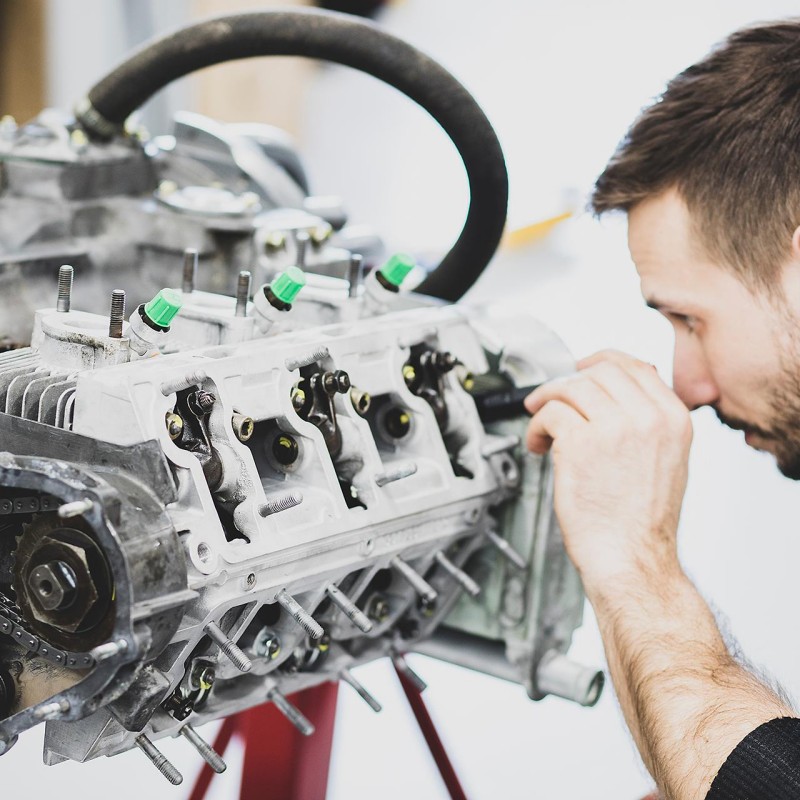V8 engines have garnered significant attention among car enthusiasts, performance seekers, and everyday users alike due to their unique combination of power, performance, and traditional appeal. Often featured in high-performance cars, trucks, and SUVs, V8 engines offer robust horsepower and torque, creating an exhilarating driving experience. However, many potential buyers and vehicle owners often wonder about the overall financial implications of owning a V8 engine. This includes the initial purchase price, installation costs, fuel efficiency, insurance rates, and maintenance expenses. Understanding the complete picture of v8 engine cost goes beyond just the price tag; it’s about weighing performance against financial responsibilities. This comprehensive guide will delve deeply into v8 engine costs, breaking down each element that contributes to the total financial commitment of owning a vehicle equipped with this powerful engine type.
The Basics of V8 Engines
Understanding the V8 engine’s structure and capabilities is critical to grasping why costs can vary so significantly.
What is a V8 Engine?
A V8 engine consists of eight cylinders configured in a “V” shape, with four cylinders on each side. This design allows for a compact engine that can produce a substantial amount of power. Often referred to as “V8s,” these engines are traditionally known for their excellent horsepower, making them a popular choice for a wide range of vehicles, from muscle cars to heavy-duty trucks.
Key Features of a V8 Engine
In contrast to four-cylinder or six-cylinder engines, V8 engines typically provide:
- High Horsepower: V8 engines often deliver impressive horsepower figures, making them suitable for performance-oriented vehicles.
- Enhanced Torque: The displacement and configuration of V8 engines allow them to produce greater torque, which is beneficial for towing and hauling heavy loads.
- Smooth Operation: The design of V8 engines typically results in smoother performance, reducing vibrations during operation.
Applications of V8 Engines
V8 engines can be found in various types of vehicles, including:
- Performance Cars: Muscle cars and sports cars often rely on V8 engines for speed and agility.
- Trucks and SUVs: Many full-size trucks and sport utility vehicles utilize V8 engines for their towing capacities and power.
- Luxury Vehicles: High-end sedans and luxury SUVs sometimes feature V8 engines, providing a blend of comfort and performance.
Factors Influencing V8 Engine Cost
Understanding the total price of owning a V8 engine involves analyzing the various factors that contribute to overall costs. These include:
Engine Type
Different V8 engine types can vary greatly in cost. They can be categorized into three main types:
- Naturally Aspirated Engines: These engines without forced induction (like turbos) are common in many classic muscle cars. They typically have a lower base cost.
- Supercharged or Turbocharged Engines: V8 engines equipped with superchargers or turbos can significantly increase performance but come with a higher price tag due to the added complexity and technology.
- Performance Modifications: Customized or modified V8 engines often carry a higher cost because of the enhancements made to boost power and performance.
Brand and Model
The make and model of the vehicle can also heavily influence the price of a V8 engine. For instance, high-performance brands such as Lamborghini or Ferrari will generally command a premium for their proprietary V8 engines, while more common models may not.
New vs. Used Engines
When considering v8 engine cost, you need to determine whether you want a new or used engine. New engines typically come with a higher price, but they offer warranties and reliability. On the other hand, used engines can significantly lower the cost but may come with hidden issues if not properly inspected or refurbished.
Installation Costs
Beyond the cost of the engine itself, consider the labor costs associated with its installation. The complexity of installing a V8 engine can vary based on:
- Vehicle Compatibility: Some vehicles are designed for easy engine swaps, while others may require extensive modifications.
- Labor Rates: Labor costs can vary considerably based on the shop’s location, reputation, and expertise in handling V8 engine installations.
Maintenance and Repair
Owning a V8 engine often leads to specific maintenance requirements, which can affect ongoing costs. Consider the following maintenance factors:
- Routine Services: Regular oil changes, filter replacements, and fluid checks are crucial for engine health and can add to maintenance expenses.
- Specialized Mechanics: Finding a mechanic skilled in V8 engines can cost more than traditional engine repairs.
- Parts Availability: Depending on the engine model and manufacturer, parts availability can vary, impacting the cost of repairs.
Average Costs of V8 Engines
To understand the financial commitment of owning and maintaining a V8 engine, let’s break down the average costs associated with these powerful engines.
Purchasing a New V8 Engine
The cost of purchasing a new V8 engine can vary widely based on the factors previously mentioned. On average, here are some potential price points:
- Standard V8 Engines: The cost of a basic V8 engine typically ranges from 4,000to8,000, depending on the brand and specifications.
- Performance V8 Engines: High-performance or aftermarket V8 engines can range from 8,000to15,000, particularly when they include modifications or enhancements.
- Luxury and Sports Vehicle V8s: Proprietary engines from luxury brands can exceed 20,000to30,000 or more, especially in high-performance applications.

Installation Costs
When factoring in installation costs, you can generally expect labor expenses to range between 500to2,000, depending on the complexity of the installation and rates at local shops. If your vehicle requires additional modifications for proper fitment, the labor costs may rise further.
Overall Lifetime Costs
Additionally, consider the overall lifetime costs of owning a vehicle with a V8 engine:
- Fuel Costs: V8 engines typically consume more fuel than smaller engines. Depending on usage and fuel prices, annual fuel costs can range from 1,500to3,000 or more, depending on the vehicle’s fuel efficiency.
- Maintenance Costs: Over a vehicle’s life, maintenance expenses for a V8 engine can add up to several thousand dollars, depending on the engine’s complexity and service requirements.
Benefits of Choosing a V8 Engine
While the costs involved can be significant, many drivers choose V8 engines due to the advantages they offer.
Performance Enhancements
One of the primary benefits of opting for a V8 engine is the substantially higher power output it provides. V8 engines deliver superior acceleration, towing capabilities, and overall speed, making them ideal for performance-oriented cars and heavy-duty trucks.
Towing and Hauling Capacity
V8 engines tend to produce higher torque, which is essential for towing and hauling heavy loads. Owners of trucks often appreciate this capability, particularly when transporting trailers or loading equipment.
Enthusiast Appeal
For many automotive enthusiasts, the thrill of driving a vehicle powered by a V8 engine is often unparalleled. The unique sound, responsiveness, and raw power contribute to an exhilarating driving experience.
Longevity and Durability
Properly maintained V8 engines can last for many years and miles, providing reliable performance for dedicated owners. This longevity can help justify the initial cost if maintained well over time.
Environmental Considerations for V8 Engines
As concerns about environmental impact intensify, it’s essential to consider the emissions and fuel efficiency of V8 engines compared to their smaller counterparts.
Fuel Efficiency and Emissions
Historically, V8 engines are known for lower fuel efficiency compared to four-cylinder engines. While recent advancements, such as cylinder deactivation technology and fuel management systems, have improved fuel economy, V8 engines still produce higher CO2 emissions per mile. This aspect is becoming increasingly important for eco-conscious consumers.
Advances in Technology
To address environmental concerns, numerous automakers are introducing technologies aimed at reducing emissions and improving efficiency. For example:
- Turbocharging: Some V8 engines are now equipped with turbochargers to enhance performance while improving fuel efficiency.
- Hybrid Versions: Certain manufacturers are developing hybrid versions of V8 engines, combining traditional combustion technology with electric power to reduce emissions and fuel consumption.
The Future of V8 Engines
As the automotive industry shifts toward sustainability, the future of V8 engines is called into question. While V8 engines hold a special place in American automotive culture, evolving technologies and growing environmental concerns are influencing preferences and innovations.
Market Trends
The trend toward smaller, more efficient engines has gained traction across the industry, prompting many manufacturers to explore alternative engine technologies. Many consumers are turning to hybrid and electric solutions that provide comparable power without the emissions burden of traditional gasoline engines.
The Enthusiast Market
Despite market trends, the enthusiast community continues to celebrate V8 engines for their power, sound, and heritage. As manufacturers look to strike a balance between performance and conservation, the demand for powerful V8 engines for performance vehicles and classic car restoration projects remains strong.
Sustainability Efforts
To remain relevant, manufacturers are iterating on V8 engine designs to meet stricter emissions regulations. Innovations in materials, improved combustion processes, and hybrid solutions are making V8 engines look like long-term players in the automotive industry.
Conclusion
Understanding the various aspects of v8 engine cost provides valuable insights for consumers intending to invest in a powerful vehicle. While initial purchase prices may be higher when choosing a V8, potential benefits include enhanced performance, increased towing capacity, and a thrilling driving experience. However, these advantages must be weighed against ongoing fuel and maintenance expenses, as well as emissions impact.
As technology continues to evolve, the automotive industry must adapt to consumer desires and environmental standards. The V8 engine will likely remain a staple in performance vehicles and trucks, but innovations aimed at improving efficiency and sustainability will shape its future.
By staying informed about v8 engine costs, benefits, and evolving trends, prospective buyers can make educated choices for their automotive needs. Embracing a V8 engine can lead to unparalleled driving enjoyment, especially for dedicated automotive enthusiasts looking for powerful and rugged performance.
Tags: automotive engines, car buying guide, v8 engine cost, vehicle performance